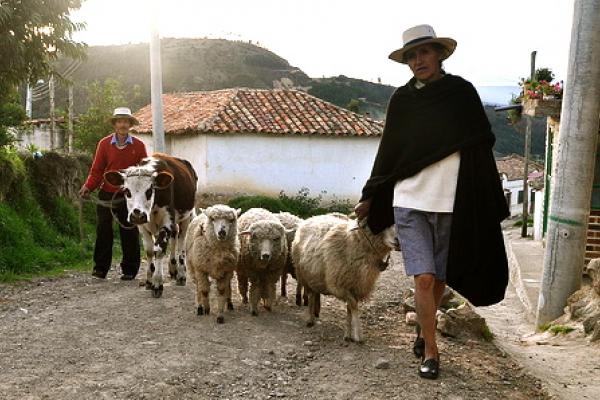Nov 11, 2011
Colombia's campesinos ("people of the land") — peasants, farmers and artisanal miners, the indigenous — are calling out for an end to the exploitation and environmental destruction of their lifelong territories and homes.
They call out for a restoration of their livelihoods. Greed and violence punishing their land is also visited upon the campesinos themselves, leaving them dead, disappeared or disenfranchised as one of the world's largest internally displaced people groups.
The campesinos of Colombia have come together and called out.
Will we listen?
Will we locate our own story in theirs?
Will justice be done? Are we willing to work for it?
Read the Full Article

Already a subscriber? Login
